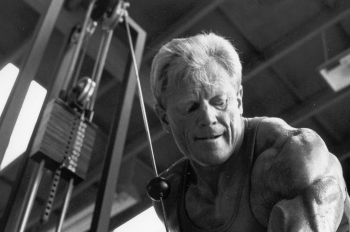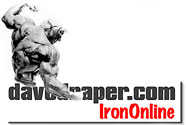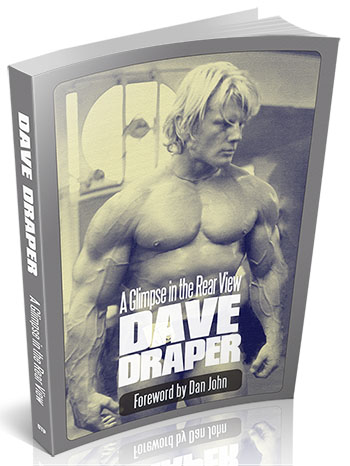Cholesterol:
Try a little respect

Anyone with a pulse has heard the horror stories about cholesterol. In fact, we are led to believe that cholesterol is one of the evils responsible for the pause or cessation of that pulse when we least expect it. Most of the medical world claims cholesterol attaches itself to our arterial walls, hardens them, restricts them, stops the flow of blood and we suffer angina, occlusions, embolisms and gangrene; and that cholesterol goes hand in hand with heart disease and obesity. Let me spend a dime of your time and clear the air, or at least attempt to thin the fog. Though definite problems with cholesterol arise in modern societies, there is a side to this hard, waxy lipid upon which the sun does shine.
Cholesterol is essential for our health. Take a look:
Cholesterol is needed within the cells to regulate the ever-changing fluidity of cellular membranes.
Sex hormones (steroid hormones) are made for us by cholesterol.
Other vital hormones that suppress inflammation, assist in survival energy surges and regulate water retention are made by the poor undervalued lipid, cholesterol.
Vitamin D, the sunshine vitamin necessary for the metabolism of calcium and phosphorous, is made from cholesterol.
Bile acids, integral in the digestion and absorption of fats, oils and fat-soluble vitamins are derived from cholesterol.
We find cholesterol secreted by glands in the skin, covering and protecting it from the ravages of external trauma (water, sun, wind) and infection.
Cholesterol drags itself to our relief as an anti-oxidant when our store of vitamin and mineral antioxidants is low. Our little, misunderstood hero.
We would have fewer problems with cholesterol if we ate right and exercised. Even those with a genetic predisposition to cholesterol harms would do a lot better. Our bodies manufacture cholesterol quite readily and are pressed to make an abundance of the ingredient when we consume excess calories, particularly from sugars and saturated fats. Stress, too, triggers the body to make more cholesterol because it is a precursor of stress hormones. Stress and excess calories from junk foods are gremlins of the modern world over which we have control. Exercise and eat right regularly to reduce these high-cholesterol scares... and many more.
A peculiarity of cholesterol that adds to its special handling is the body can make it, but cannot break it down as it can sugars, fatty acids and proteins. It can only be eliminated efficiently through the stool, and then only if adequate fiber is present in the diet. Add fiber to your smart eating.
We are buried in research about cholesterol and different schools of thought are emerging. Some say the human being is not designed to metabolize large amounts of dietary cholesterol, or he is not equipped to regulate its distribution, or his cholesterol-removing fiber is far too low. Thus, cholesterol contributes to the widespread disease of arteriosclerosis -- hardening of the arteries.
I'm a meat eater who includes eggs and dairy, as well as fruits and vegetables in his menu and don't hesitate recommending the diet to you. My total cholesterol level hovers at 132 year after year. Two out of 10 might have to be cautious of their dietary cholesterol, but is that a hard truth if they exercise and bring in fiber and the micronutrients that provide balance and efficacy in the system?
I lean toward the findings of those stimulating scientists who point out that "cholesterol problems" can be avoided or resolved by supplying the body with adequate vitamins and minerals often deficient in those foods that are high in protein. To enjoy the muscle-building, fat-burning benefits of protein-rich foods, bring in the micronutrients and accessory ingredients that assist their metabolism, absorption, transportation and eventual healthy elimination. The addition of certain micronutrients (vitamins C, B3, and minerals calcium, zinc, copper and chromium) plus omega-3 EFAs, fiber and regular exercise diminish damaging lipid levels, reduce stress and make you strong -- a prescription for the defense against and reversal of cardiovascular disease and obesity. Some of these factors can be derived from our daily diet, but not in the quantities we require. Be prepared to supplement your food intake.
I'm not a political troublemaker or a health food activist, yet I can't ignore some distinct fallacies in the market place and in the medical community that inhibit our development. The news and advertising media have us convinced that a low-fat and cholesterol-free diet is an answer to the broad base of health problems. These diets, in fact, might indirectly lead to health problems far worse than holding too many extra pounds, including suicide (serotonin uptake in the brain is inhibited due to lack of cholesterol, and depression and aggressive behavior go unchecked) and cancer (disease-fighting antioxidant uptake in the system is suppressed due to lack of cholesterol).
We are also encouraged to use cholesterol-free margarine as a butter substitute only to find that it typically contains the most dangerous oils in the refrigerator. "Cholesterol free" is a gold mine to the packagers of modern foods. Let's keep our eyes open.
Two-time Nobel Prize-winning Dr. Linus Pauling and his associate, Dr. Mathias Rath, put forth the theory that the lack of vitamin C in the body is responsible for cardiovascular disease, thickening arteries, high blood pressure and a cascade of problems that have us suffering in the far corners of our system. The comprehensive study centering on a single magnificent micronutrient, vitamin C, upset a medical community that was long targeting cholesterol as the villain. Support was anemic. Printing of the report in well-read and prestigious journals was at first approved and later rejected. Politics and economics rose above the head of the Nobel Prize winner and we wait for the sun to shine and the mist to evaporate. Don't wait for science to sign the bottom line to your contract for an extended and prosperous life. Be aware, look, listen and act. Exercise and eat right regularly or...
Blast it and don't follow the sheep. Fly. Dave
Two books you might add to your less silly book list:
Fats
that Heal, Fats that Kill by Udo Erasmus
More fun than it sounds -- very interesting, broadly informative
and applicable
The Heart Disease Breakthrough by Thomas Yannios, M.D. About as
fun as it sounds but very readable and informative.
Say,
wait! Before you move on...
Would
you like to get a weekly email column
written personally by Dave?
It's
free, motivating and priceless!
Enter your email address here:
Then
press the sign up button. You'll also have to REPLY to
the confirmation message from our list software to be
added to Dave's mailing list.

